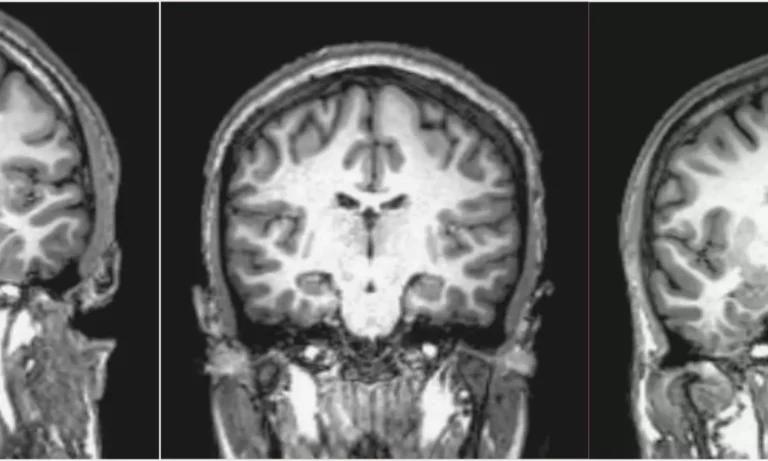Schizophrenia, a severe psychotic disorder that disrupts an individual’s perception of reality, has long been a source of fascination within the medical community. However, the relationship between schizophrenia and substance abuse has often been overlooked, leaving many individuals and their loved ones with the complexities of this dual diagnosis. This article will look into this connection, exploring the potential impact of alcohol and drug use on the development and progression of schizophrenia.
Understanding schizophrenia
Schizophrenia is a complex mental illness that shows up through a range of psychotic symptoms, including delusional beliefs, hallucinations and disorganised thoughts. This disorder can have a profound impact on an individual’s ability to function in various aspects of life, from work and relationships to social interactions and personal care. The onset of schizophrenia typically occurs during the teenage years or early adulthood, a critical period of development, further underscoring the significance of this condition.
Schizophrenia and substance abuse
The relationship between schizophrenia and drug abuse is complex with a significant overlap in the prevalence of these two conditions. Studies have consistently shown that the rate of substance use among individuals with schizophrenia is significantly higher than in the general population, with alcohol, nicotine, cocaine, amphetamines and marijuana being the most commonly abused substances.
How substance abuse impacts schizophrenia
The co-occurrence of schizophrenia and substance abuse can have a profound impact on the severity and progression of both conditions. Substance abuse can intensify the symptoms of schizophrenia, leading to more frequent psychotic episodes, increased risk of hospitalisation, incarceration, and even suicide attempts. Conversely, the symptoms of schizophrenia, such as delusional beliefs, hallucinations, and disorganised thought patterns, can make it challenging for individuals to recognise and address their substance abuse issues.
Masking the symptoms
One of the key challenges in identifying and treating the dual diagnosis of schizophrenia and substance abuse is how the two conditions can mask each other’s symptoms. The effects of drug or alcohol abuse can obscure the underlying signs of schizophrenia, making it difficult for healthcare providers to accurately diagnose and address the root causes of the individual’s struggles. Similarly, the cognitive and behavioural disturbances associated with schizophrenia can make it challenging to recognise and address the individual’s substance abuse issues.
Causes of schizophrenia
The origins of schizophrenia and its relationship with substance abuse are many, involving a complex interplay of various factors. Researchers have identified several potential contributors to the development of this disorder, including:
Neurochemical imbalances
Imbalances in certain neurotransmitters, such as dopamine and glutamate, have been strongly linked to the thought patterns and behaviours associated with schizophrenia. These neurochemical irregularities may play a significant role in the development and progression of the disorder.
Structural brain differences
Imaging studies have revealed structural differences in the brains of individuals with schizophrenia, particularly in the frontal lobe, which is responsible for cognitive functioning and decision-making.
Genetic predisposition
While a single gene does not cause schizophrenia, research suggests that there is a genetic component to the disorder, with a higher risk of developing schizophrenia among close relatives and twins.
Environmental factors
Factors such as complications during pregnancy, exposure to toxins or viruses, and traumatic life experiences have been proposed as potential environmental contributors to the development of schizophrenia.
The role of substance abuse
While substance abuse does not directly cause schizophrenia, the chronic and excessive use of drugs or alcohol can exacerbate the symptoms of the disorder and increase the frequency of psychosis. Certain substances, such as cannabis, LSD, and stimulants, have been specifically linked to the onset or worsening of schizophrenic symptoms.
Understanding the nature of the underlying causes of schizophrenia and substance abuse is crucial in developing comprehensive and effective treatment approaches.
Signs and symptoms of schizophrenia
Recognising the signs and symptoms of schizophrenia is essential for early intervention and effective treatment. The symptoms of this disorder can be broadly categorised into four main areas:
- Sensory symptoms: Visual and auditory hallucinations, such as seeing things that are not present or hearing voices others cannot hear
- Cognitive symptoms: Include difficulty understanding or using language, disorganised thinking, and false beliefs about achievements or persecution
- Behavioural symptoms: Social withdrawal, neglect of personal hygiene, fear of interacting with others, and unpredictable or erratic behaviour
- Emotional symptoms: Flat facial expressions, inappropriate emotional responses, lack of empathy, and unexplained mood changes
These symptoms can manifest in various ways, and their severity can fluctuate over time. It is important to note that the early signs of schizophrenia, such as changes in speech, loss of interest in activities, and social withdrawal, may not be immediately recognised as indicators of the disorder, particularly in individuals struggling with substance abuse.
Complexities of dual diagnosis treatment
Treating individuals with a dual diagnosis of schizophrenia and substance abuse requires a comprehensive approach that addresses both the mental health condition and addiction-related components of the individual’s condition.
Role of medication in schizophrenia treatment
Antipsychotic medications, both older “typical” and newer “atypical” formulations, play a crucial role in managing the symptoms of schizophrenia. These medications can help reduce the severity of hallucinations, delusional beliefs, and other psychotic experiences, allowing individuals to engage more effectively in their recovery process.
Psychosocial interventions
In addition to medication, a range of psychosocial interventions are essential in the treatment of schizophrenia and substance abuse. These may include individual therapy, group therapy, family systems therapy, cognitive-behavioral therapy (CBT), and trauma-focused therapies. These approaches aim to address the psychological and behavioural aspects of both conditions, helping individuals develop coping strategies and build a supportive network.
Ongoing support
The recovery process for individuals with a dual diagnosis of schizophrenia and substance abuse is often a lifelong journey. Aftercare and ongoing support, such as regular check-ins, access to mental health and addiction services, and participation in support groups, are crucial in maintaining long-term stability and preventing relapse.
Conclusion
The relationship between schizophrenia and substance abuse is a complex one, with profound implications for individuals and their loved ones. By understanding the nuances of this dual diagnosis, healthcare providers, policymakers, and the general public can work together to develop more effective treatment approaches, reduce the stigma surrounding these conditions, and provide the necessary support and resources to those in need.
Sources
Medical Disclaimer
NowPatient has taken all reasonable steps to ensure that all material is factually accurate, complete, and current. However, the knowledge and experience of a qualified healthcare professional should always be sought after instead of using the information on this page. Before taking any drug, you should always speak to your doctor or another qualified healthcare provider.
The information provided here about medications is subject to change and is not meant to include all uses, precautions, warnings, directions, drug interactions, allergic reactions, or negative effects. The absence of warnings or other information for a particular medication does not imply that the medication or medication combination is appropriate for all patients or for all possible purposes.









